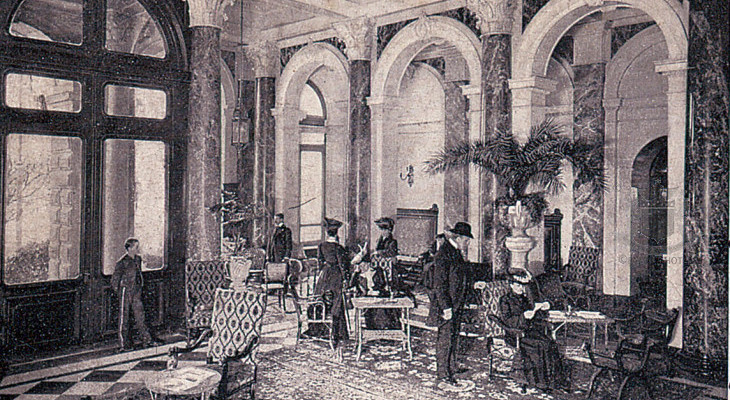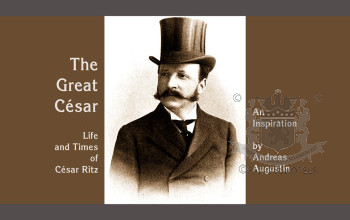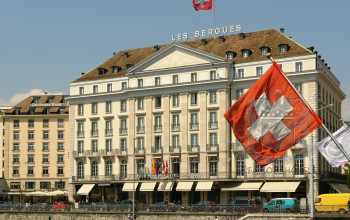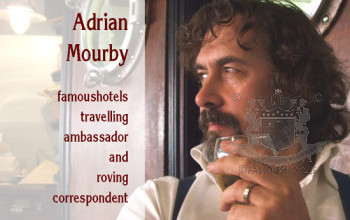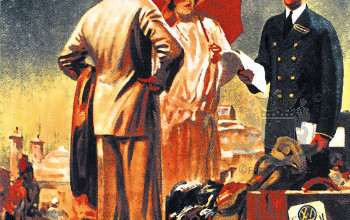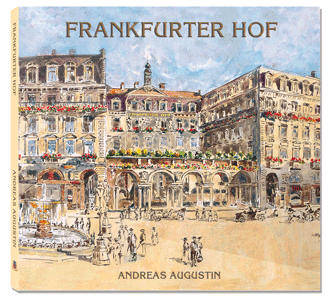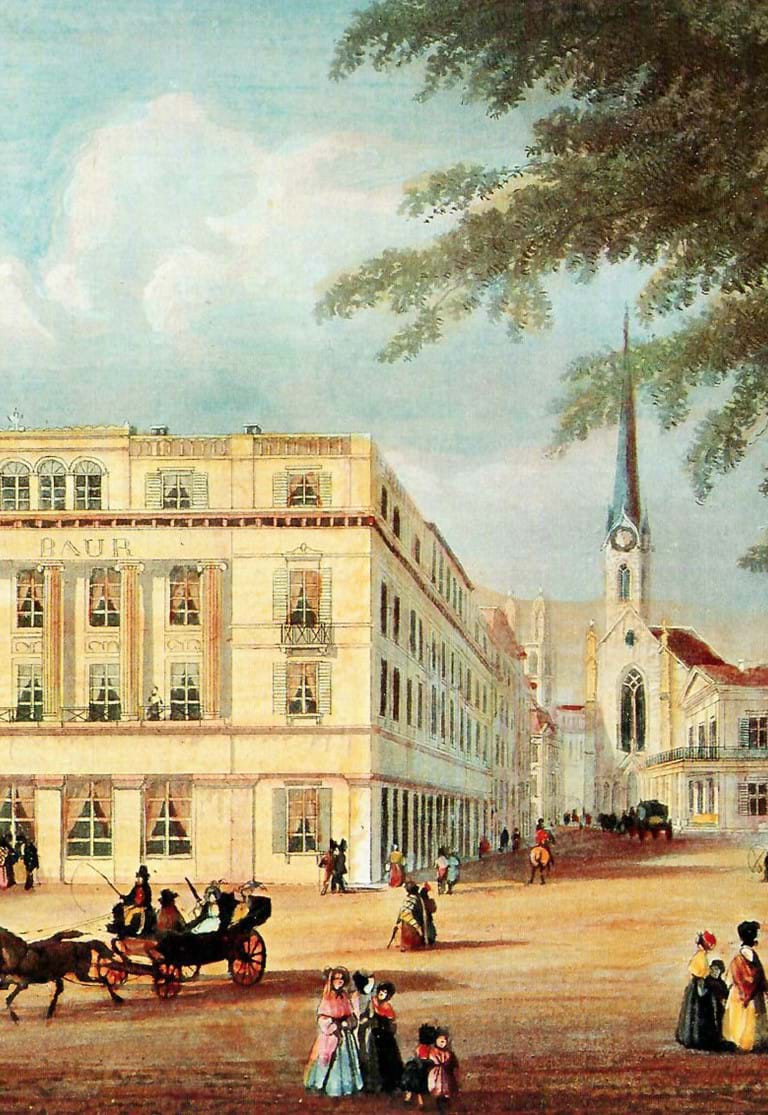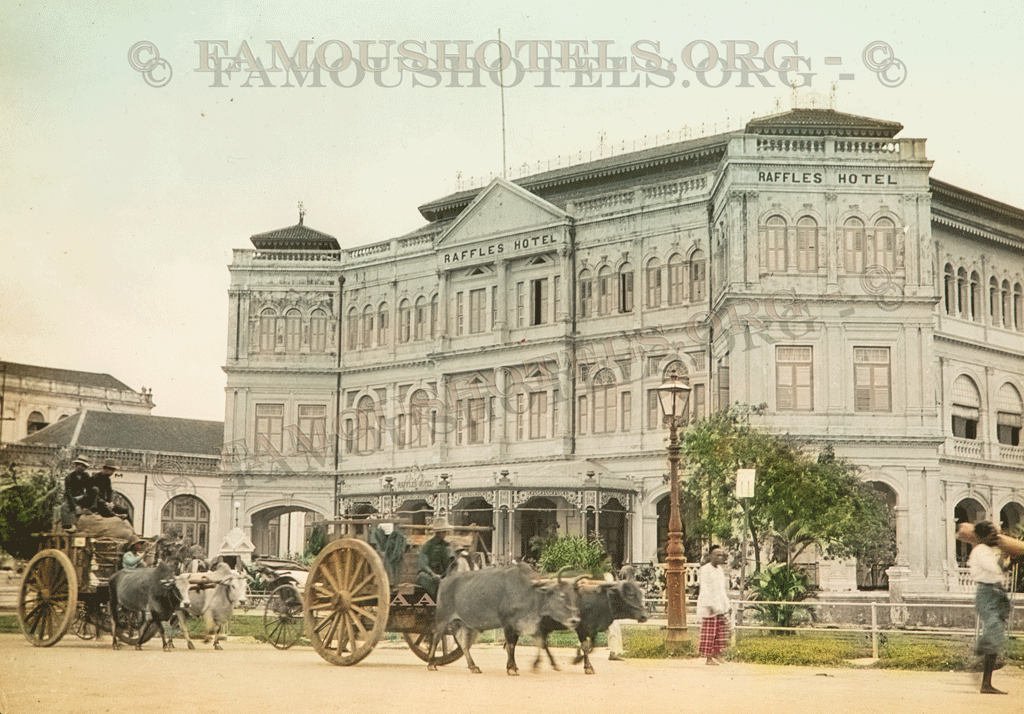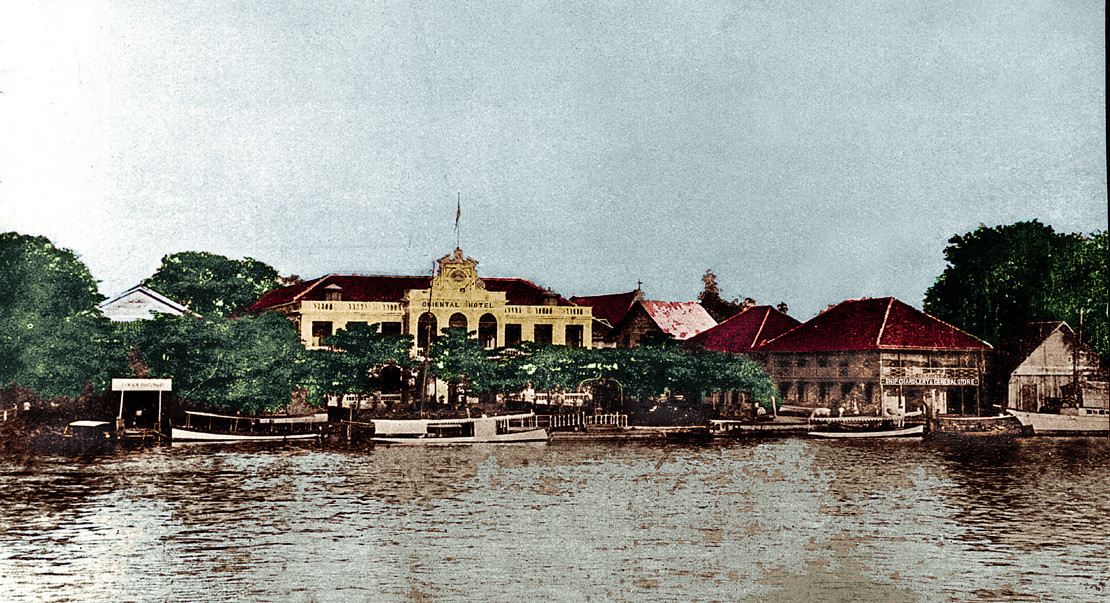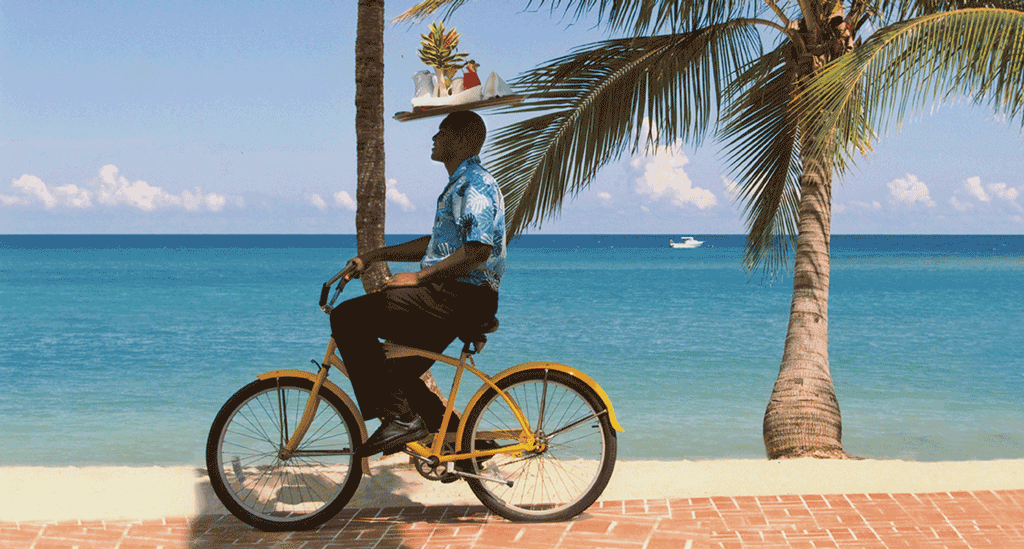The Rise of the Swiss Grand Hotel (2)
( words)
The City of Lucerne
By Andreas Augustin
In the mid of the 19th century, Switzerland had narrowly avoided financial ruin. In the years leading up to 1880, Switzerland was a classic emigration land. It was very much partially due to the influx of tourists that this great emigration could be stopped. Swiss talents could be found all over the world, its pastry chefs, for example, were successful all over the globe – from St. Petersburg to Chicago. But none of them were in Switzerland.
Switzerland, the land-locked country par excellence, had been opened up by the construction of the railways and was accessible to their passengers for the first time. Since Austria (Semmering in 1854, Brenner in 1867) and France (Mnt Cenis in 1871) had opened their Alpine railways relatively swiftly, Switzerland would have been threatened by economic isolation if it hadn’t opened its Alpine tunnels (Gotthard), rail links and mountain passes.
Its natural beauty attracted a growing number of travellers from the continent and from England. Before the era of the grand hotels started, the city of Lucerne proceeded with breath-taking speed and quickly became an all-year-round destination. Traffic on the lake never abated; thanks to its depth and currents, the lake doesn’t freeze over in the winter. The steamers ferry people across the lake all year round. This bustle and the screeching of the seagulls give Lucerne the feel of a busy working harbour.
The first of Lucerne’s hotels oriented themselves around the lake and the Alps; they left the narrow alleyways of the inner town behind and made the lake and the stunning unobstructed views their main attractions. On the built-up lake walls, due to the absence of noble palaces, replacement palaces were erected to accommodate kings and queens: the Grand Hotel National, the Hotel Schweizerhof and other luxury hotels.
‘In order to cater for kings, one must first build a palace.’ This was the motto of Colonel Maximilian Alphons von Pfyffer von Altishofen. And it was in this spirit that he opened the Grand Hotel National in Lucerne in 1868. It was the most luxurious hotel in Switzerland. A young hotelier by the name of César Ritz received the chance to prove his metal. In the kitchen, a prodigy from France called August Escoffier worked his magic (the ‘taste of French cuisine’ became famous!).
Marble columns, Persian rugs, pageboys in casual but alert service – the Grand Hotel offered the visitor international flair in the Swiss mountains. Modern technical prowess was paired intimately with historical kitsch. The Lucerne hotel architect Emil Vogt was responsible for the renovation of The National, which took place in 1900. His style can be seen in intelligent dining, reading, games and smoking rooms as well as the reception halls. At last, authentic Swiss feeling had returned to the project. Vogt combined French Baroque architecture with old Tessin style and monumental Renaissance fireplaces. For the bedrooms, he conceived the concept of an apartment – a method of connecting several rooms into one larger space. It was to become a ‘home away from home’ — a new concept for international hotel-keeping.
And more exuberantly decorated, many-winged fantasy buildings shot up on the quay walls, with quirky looking Baroque façades. Inside these buildings, the most modern technology was incorporated: just like today, the hotels were filled with technological innovations that hadn’t yet found their way into private households: gas lighting, telephone connections, lifts, central heating, running water and a central vacuum cleaner facility. In 1889 only three train stations and a handful of private houses had electricity in Switzerland, but a staggering 30 hotels were already fully provided with power.
Just like today, banking collapses and financial crises took their toll on these hotels. However, following the never-ending ebb and flow of fortune, Lucerne managed to maintain its reputation as an exclusive destination for wealthy travellers.
In 1873, the American writer Henry James wrote that the view from Lucerne of the mountains, the clouds and the lake was so utterly captivating that it was like an artistic spectacle; an opera being run by countless stagehands and hard-working impresarios behind the scenes. With its tens of thousands of tourists, he reckoned that Lucerne was a ‘perfect system’. One had the impression that the mountains had waited thousands of years for the hotels in order to finally have a partner that could match their sheer colossal grandeur.
The attractions weren’t enough for King Ludwig II of Bavaria. In 1881 he chartered a ship in order to bring actors from Munich specially to act out the scenes from Schiller’s play Wihelm Tell in the actual locations where the drama historically took place. The king often came to the lake; he once visited Richard Wagner while the latter was living here. For Wagner, the pleasant summer air was more than just a delightful holiday; it was also an escape.
Around 1900, Lucerne had approximately 40,000 inhabitants. They opened up their city to nearly 200,000 guests (spending a total 500,000 nights in the city’s hotels) every year.
Queen Victoria of England resided in Lucerne. For her, Mt Rigi, Lake Lucerne and the surrounding area constituted the most beautiful place in the world.
The rooms of the grand hotels resounded with this praise. Switzerland acquired the reputation of an impeccable tourist destination: luxurious, well kept and – of course –expensive. For decades, the profitability of the tourism industry was guaranteed and Switzerland became an Elysium, nicknamed ‘Europe’s hotel’.
From the book Parkhotel Vitznau by Andreas Augustin

